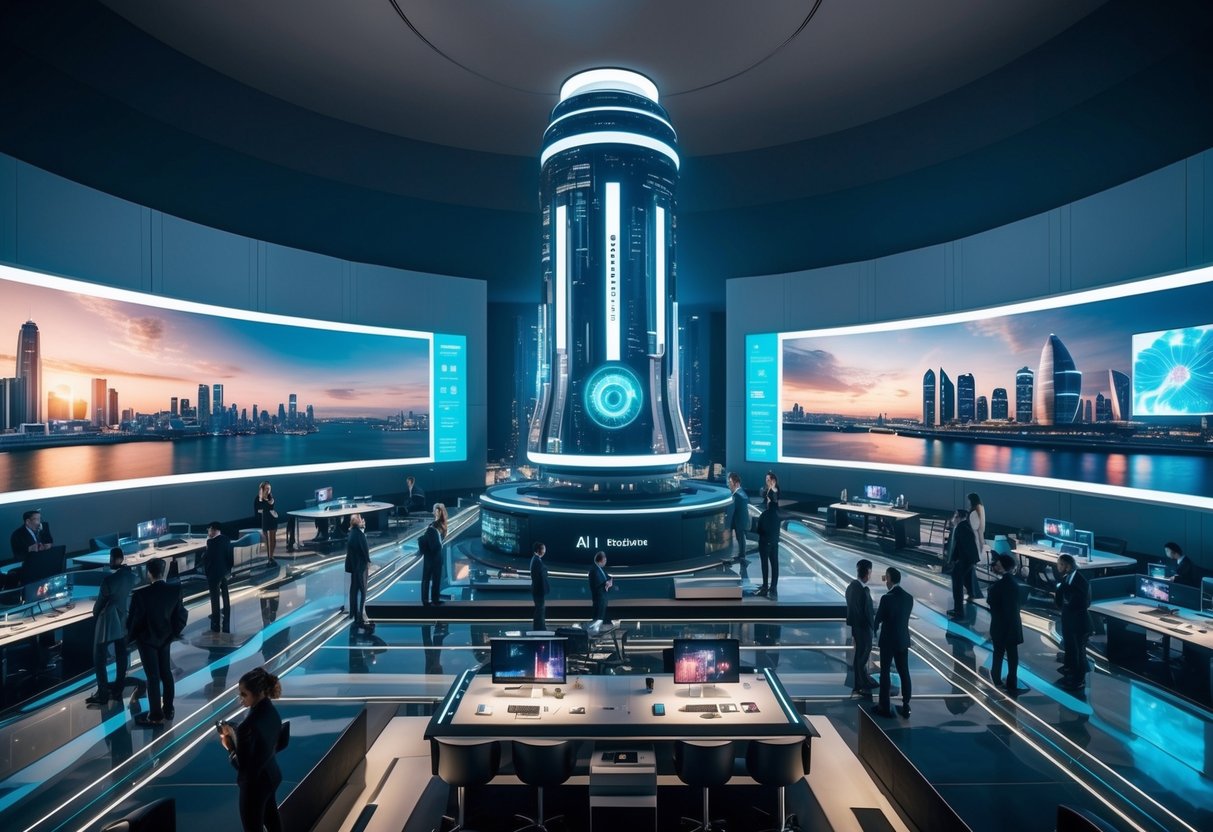
Personalization and Customization in AI-Driven Creativity
AI is transforming the arts by enabling unique personalization and customization that cater to individual preferences. This transformation is most evident in custom content creation and the integration of augmented reality in design.
AI and the New Age of Custom Content Creation
Artificial Intelligence revolutionizes content creation by tailoring experiences to users’ preferences through advanced algorithms. It analyzes data like user history and preferences, enabling personalized artistic experiences across various media forms.
This level of personalization extends to music, video, and visual arts. Computers aid composers in generating melodies tailored to specific moods, and filmmakers employ AI to create trailers emphasizing themes appreciated by target audiences. Personalization encourages deeper engagement and satisfaction.
In literature, AI assists writers by suggesting plots aligned with readers’ interests. AI-driven platforms recommend books based on what users have previously enjoyed, enhancing their content consumption with personalized suggestions. This new age of content creation creatively adapts to the audience, meeting individual needs effectively.
Augmented Reality and User-Centric Design
Augmented Reality (AR) significantly enhances user-centric design by incorporating AI advancements. It customizes digital interactions and personalizes experiences across domains such as gaming, architecture, and retail, making them more immersive and interactive.
In architecture, AR allows clients to visualize building designs by overlaying digital models onto physical environments. Users can modify features in real time, aligning the designs with their personal preferences. This interactive approach ensures that final designs meet specific expectations.
In retail, AI-powered AR creates virtual fitting rooms where shoppers try on clothes digitally. By personalizing the shopping experience, consumers make informed purchasing decisions. This level of customization signifies a shift towards a user-focused design methodology in diverse creative fields.
AI’s Future in the Arts and Human Experience
Artificial Intelligence continues to push artistic boundaries, presenting new possibilities for innovation and altering how art is created and experienced. Its integration into the human experience introduces novel ideas, reshaping perceptions of creativity.
Exploring the Uncharted: Future Innovations
AI is set to introduce groundbreaking changes in artistic creation. Artists and technologists are collaborating to create works that are not only visually and audibly impressive but also interactive. These collaborations may include generating music based on listener moods or creating digital paintings that change with environmental conditions.
As AI tools become more accessible, the barriers to entry in the arts lower, empowering amateur creators to produce professional-quality work. Artists might use AI to simulate different styles, allowing for diverse expressions. New genres and forms of art may emerge as AI assists in discovering unexpected combinations and pushing beyond traditional methods. The focus remains on how AI can work alongside creators to expand the boundaries of art.
AI, Creativity, and the Evolving Human Experience
The integration of AI into the arts brings a transformation in how individuals experience creativity. It enhances personalized artistic experiences by tailoring content to individual preferences. Audiences might receive recommendations for artworks that resonate emotionally, thus enriching personal engagement with art.
AI’s involvement may lead to redefined roles of the artist and audience, inviting new ways of interaction and collaboration. It challenges perceptions about creativity, raising questions about originality and authorship. As AI contributes to the arts, it prompts a reflection on human experience, pushing society to consider what it means to create and appreciate art in an AI-driven world.